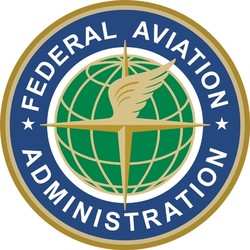Tue, Aug 23, 2011
FAA Will Modernize Design And Manufacturing Rules For
Entry-Level Certified Airplanes
The FAA has formed a Part 23 Reorganization Aviation Rulemaking
Committee (ARC), tasked with modernizing the design and
manufacturing rules for entry-level, certified airplanes, which
industry insiders say could result in lower cost for entry-level,
certified airplanes, and growth opportunities for the existing
Special Light Sport Aircraft (S-LSA) manufacturers. An additional
benefit could be an increase in safety for all light GA
airplanes.
GAMA CEO Pete Bunce

“General aviation activity on the light end has been in a
steady decline for decades,” said GAMA President and CEO Pete
Bunce. “The number of new airplanes being sold today is but a
tiny fraction of decades past. While there are a number of factors
contributing to this decline, one very prevalent issue is the
increasing cost of certification and manufacturing oversight, which
has led to a lack of cost-effective, entry-level products which
attract new pilots. GAMA believes the FAA’s vision for the
new Part 23 rules will enhance the vitality of GA for future
generations of pilots and aircraft owners.”
As the FAA has worked to address airplanes with increased
complexity and performance, the certification process for light
aircraft has become over-burdensome. The rewrite of these
certification rules will align the requirements to address simple
products with equivalent rules while eliminating the need for
special conditions on high-performance and complex aircraft such as
light jets. This makes certification and manufacturing for a
particular product more efficient, thereby decreasing the cost of
these airplanes and acting as a catalyst for the resurgence of the
light end of the market.
Additionally, the strict safety standards that are a hallmark of
U.S. certified airplanes will become even more effective as the
rules become increasingly tailored to the products and technologies
undergoing certification. GAMA hopes that authorities from around
the world will participate as observers in this process so that
these new certification standards for light aircraft will be
consistent and accepted around the globe.

GAMA says the rewrite will also assure that the FAA design
regulations are flexible in nature so they properly address
airplanes and new technologies built over the next 20 years.
Flexibility in the requirements is necessary to maintaining the
level of innovation and safety we have come to expect in general
aviation. The rewrite will also give LSA manufacturers a more
direct way to expand into the Part 23 certified market with future
products.
“The new S-LSA airplanes will certainly continue to
attract new interest in aviation, but without cost-effective,
entry-level certified aircraft, many of these new pilots will not
continue the adventure of flying and advanced ratingsn," Bunce
said. "We could not be more pleased that the FAA has taken on this
initiative."
More News
“While legendary World War II aircraft such as the Corsair and P-51 Mustang still were widely flown at the start of the Korean War in 1950, a new age of jets rapidly came to >[...]
Decision Altitude (DA) A specified altitude (mean sea level (MSL)) on an instrument approach procedure (ILS, GLS, vertically guided RNAV) at which the pilot must decide whether to >[...]
Aero Linx: National Aviation Safety Foundation (NASF) The National Aviation Safety Foundation is a support group whose objective is to enhance aviation safety through educational p>[...]
Also: Cal Poly Aviation Club, $$un Country, Arkansas Aviation Academy, Teamsters Local 2118 In response to two recent general aviation accidents that made national headlines, more >[...]
“The FAA is tasked with ensuring our skies are safe, and they do a great job at it, but there is something about the system that is holding up the medical process. Obviously,>[...]
 Aero-News: Quote of the Day (04.28.25)
Aero-News: Quote of the Day (04.28.25) ANN's Daily Aero-Term (04.28.25): Decision Altitude (DA)
ANN's Daily Aero-Term (04.28.25): Decision Altitude (DA) ANN's Daily Aero-Linx (04.28.25)
ANN's Daily Aero-Linx (04.28.25) Airborne-Flight Training 04.24.25: GA Refocused, Seminole/Epic, WestJet v TFWP
Airborne-Flight Training 04.24.25: GA Refocused, Seminole/Epic, WestJet v TFWP Aero-News: Quote of the Day (04.29.25)
Aero-News: Quote of the Day (04.29.25)




